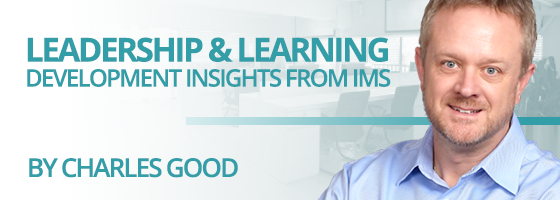No one likes conflict. At least not most of us. We are usually looking for ways to defer it or avoid it altogether. However, leaving conflict unresolved usually only makes it worse. Remember, unresolved conflict is not like wine, it does not age well.
The irony is that many of us know what to do, yet still fail to do it. This suggests that for many of us we need more practice, since we are closing skills gaps not knowledge gaps. And the most reliable way to close a skill gap is through practice.
It is critically important to become aware of those mistakes and then discover ways to avoid them. The following are a few of the more common mistakes in conflict and how to avoid them.
BEING RIGHT
By trying to prove that you are right and setting up the argument as ‘I am right’ and ‘You are wrong’ will create defensiveness from each side. Don’t demand that the other person see it your way and don’t take it as a personal attack if they have a differing opinion.
Leadership guru Marshall Goldsmith states, your mission in life should be to make a positive difference, not to prove how smart or right you are.
NOT LISTENING
Have you ever found yourself in a heated conflict, and your only goal is making sure you are being heard? Even if you are nodding your head and making good eye contact, you may still be waiting for the other person to stop talking so that you can interject with your thoughts. Remember, no one cares about what you know until they know you care about them and what they are saying.
Try not to interrupt or roll your eyes or disregard what the other person is saying. Instead, practice active listening skills which entail having good eye contact, acknowledging what the other person is saying through your words and nonverbals, and make sure to paraphrase what they have stated to ensure they are feeling heard and understood.
OVERGENERALIZING
How often have you made sweeping generalizations about the person you are arguing with by saying such things as, ‘You are a mean person’ or ‘ You are always are so arrogant’? You have just made the argument about the person instead of about the issue. When someone feels their character is being attacked, they become defensive as it has now become a personal attack on them. Instead, focus on the issue and avoid drawing broad generalizations about the other person. Also, watch the language you are using and avoid sentences that begin with ‘You always’ and ‘You never’ which naturally lead to sweeping generalizations.
In his book, The Coward’s Guide to Conflict, Dr. Tim Ursiny provides several ways in which we sabotage ourselves in dealing with conflict. Many of us become defensive and react with anger when dealing with an upset person. However, by reacting with strong emotion, you have given away your power. Practice remaining calm and realizing that you always have to the power to choose your reaction. Also, always try to understand where the other person is coming from–what are their issues. Just because you understand where they are coming from doesn’t mean you agree with them.
These common mistakes and how to avoid them are not easy to stop, especially if they have become habitual. The key is to notice them and then substitute in more effective strategies, such as the ones discussed in this article.
MORE ON CONFLICT
If you would like to learn more about how to avoid the common mistakes in conflict, listen to our Good Leadership podcast episode with Dr. Ursiny. You can also refer to our previous blogs on Handling Difficult Conversations, or Dealing with Difficult People.
ABOUT CHARLES GOOD
Charles Good is the president of The Institute for Management Studies, which provides transformational learning experiences that drive behavioral change and develop exceptional leaders. Charles is an innovative and resourceful leader who specializes in bringing people together to develop creative organizational and talent strategies that enable business results. His areas of expertise include assessing organizational skill gaps and leading the design, creation and delivery of high impact, innovative learning solutions that achieve business goals.
